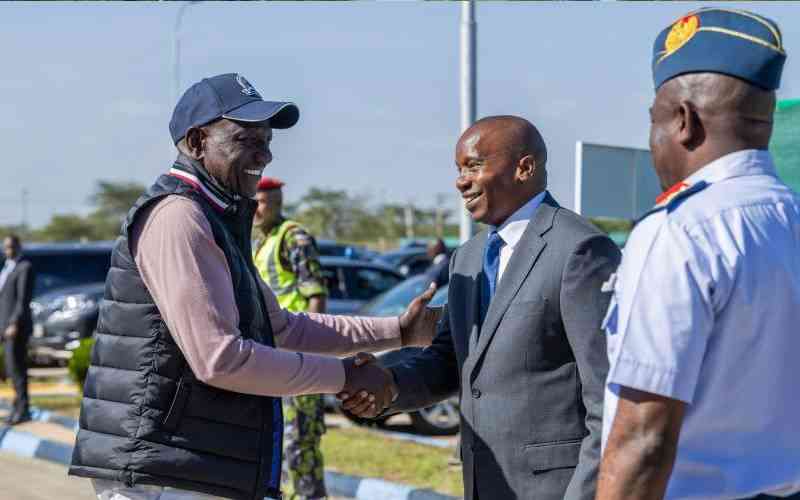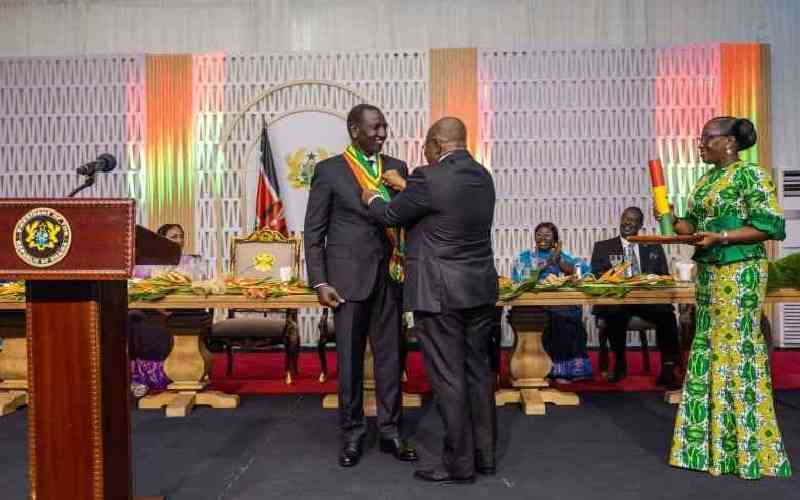The people who are drawn into violent extremism are so diverse that generating a single profile has always been futile. The rise of new terror groups, in recent years, have meant that such attempts have taken on fresh urgency, with poverty and feelings of marginalization being the most outstanding grievance.
In Kenya, as in many other countries, the regions acknowledged to be flashpoints for radicalisation and violent extremism are synonymous with extreme poverty, high illiteracy levels, historical marginalization and under-investment in basic services. The majority of those living in these regions have for years believed to be excluded from the national development agenda.
Increasingly, counter-terrorism approaches are looking at soft power, rather than security-led responses to confront the challenges of radicalism and terrorist threats.
As observed by Nobel Peace Prize Laureate Archbishop Desmond Tutu, “you can never win a war against terror as long as there are conditions in the world that make people desperate — poverty, disease, and ignorance”.
Interrogation of the circumstances of the community is backed up by the reality that terrorists and insurgencies cannot function without the support of the communities in which they operate.
Therefore, the recent communique issued by the Kenya and Ethiopia during the recent visit by Ethiopia Prime Minister Dr. Abiy Ahmed Ali is significant. The communique observed that the cross-border challenges faced by the two countries are exacerbated by spill-over of conflict and vulnerable communities, hence the need to focus on promoting sustainable peace and inclusive economic growth along the border areas.
The cross-border initiative launched in 2015 by the two countries aims to equip the citizens along the common border, especially the youth and women, with skills and tools that enable them to make meaningful choices to improve the lives of their families.
This empowerment and creation of sustainable solutions to lift families out of poverty is a deliberate strategy to prevent violent extremism and conflict. It is a new frontline programme being implemented by the Government of Kenya and Ethiopia, in collaboration with the UN in Kenya and Ethiopia, with the initial financial support for the conflict prevention and peace building component of the project, from the European Union. The Government of Japan has also come on board by providing financial support for prevention of conflict and violent extremism in Marsabit and Mandera counties.
Known as the Cross-Border Integrated Programme for Sustainable Peace and Socio-Economic Transformation, the programme is focusing on regions where harsh economic realities have undermined social cohesion and increased tension, thereby keeping residents in almost permanent state of instability and conflict.
The project adopts an integrated approach to this challenge by combatting conflict and fostering sustainable peace by adopting comprehensive strategies for building resilience and improve the livelihoods of the border communities.
The investment focused on economically empowering these communities by strengthening market access, trade and financial services; enhancing disaster and risk reduction and management in the climate vulnerable areas; and improving access to basic social services such as water and health.
The project is in line with Kenya’s policy under the Third Medium-Term Plan of the Sector Working Group of Security, Peace Building and Conflict Resolution, which emphasizes the importance of addressing cross-border conflicts and regional instabilities, as well as strengthening early warning systems.
Mohamud Mohamed Ali is the Governor, Marsabit County
Prof. Asfaw Kumssa is Chief Technical Advisor, Office of the UN Resident Coordinator
Stay informed. Subscribe to our newsletter
 The Standard Group Plc is a
multi-media organization with investments in media platforms spanning newspaper
print operations, television, radio broadcasting, digital and online services. The
Standard Group is recognized as a leading multi-media house in Kenya with a key
influence in matters of national and international interest.
The Standard Group Plc is a
multi-media organization with investments in media platforms spanning newspaper
print operations, television, radio broadcasting, digital and online services. The
Standard Group is recognized as a leading multi-media house in Kenya with a key
influence in matters of national and international interest.
 The Standard Group Plc is a
multi-media organization with investments in media platforms spanning newspaper
print operations, television, radio broadcasting, digital and online services. The
Standard Group is recognized as a leading multi-media house in Kenya with a key
influence in matters of national and international interest.
The Standard Group Plc is a
multi-media organization with investments in media platforms spanning newspaper
print operations, television, radio broadcasting, digital and online services. The
Standard Group is recognized as a leading multi-media house in Kenya with a key
influence in matters of national and international interest.








